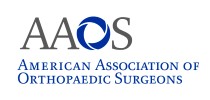 You are entering webpages belonging to the American Association of Orthopaedic Surgeons, which includes information and resources for Association advocacy efforts and the Political Action Committee of The American Association of Orthopaedic Surgeons (OrthoPAC).
You are entering webpages belonging to the American Association of Orthopaedic Surgeons, which includes information and resources for Association advocacy efforts and the Political Action Committee of The American Association of Orthopaedic Surgeons (OrthoPAC).
More than 1 in 4 Americans have a bone or joint injury or disorder. The ability to quickly diagnose a musculoskeletal condition and initiate a treatment plan is integral to restoring patient mobility and preventing future injury. The in-office ancillary services (IOAS) exception to the Stark Law is essential to efficiently diagnosing and treating musculoskeletal conditions by allowing orthopaedic surgeons to provide imaging and physical therapy (PT) services in their offices. Congress should oppose any effort to remove the in-office ancillary services exception in the Stark Law.
Also critical in treating bone or joint injuries is access to care in hospitals around the country. Today, physician-owned hospitals (POHs) are subject to a strict moratorium on expansion, preventing them from increasing access to high-quality, lower-cost care for Medicare and Medicaid patients. The inability of physician-owned hospitals to address the growing demand for high quality health care services in their community is bad for our entire health care system and penalizes patients who should have the right to receive care at the hospital of their choice.
The AAOS believes the ban on expansion of physician-owned hospitals must be lifted to ensure Medicare patients have access to high quality health care, as these hospitals provide some of the highest quality care in the country.
Recent News
-
AAOS 119th Letter of Support Physician-Led Hospitals
-
AAOS Stark Law and Anti-Kickback Statute Final Rules Summary
-
2021 OPPS Physician Owned Hospital Letter AAOS Sign On
-
House Subcommittee Discusses Consolidation
-
AAOS Works to Reform Stark Law
-
AAOS Supports Stark Reform Efforts
-
Legislators Approve Stark Measure
-
Stark Briefing Addresses Value-Based Payment
-
AAOS Applauds House for Introducing Legislation to Lift Hospital Ban
-
Ortho Surgeons Talk Physician-Owned Hospitals
-
Orthopaedic Surgeons Discuss Physician-Owned Hospitals on Capitol Hill